Teacher Spotlights
SGAP Teacher Spotlight for September 2018 (Jill Anne Hahn, Evansville, IN)
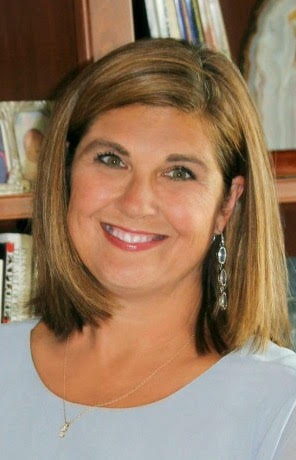
Name: Jill Anne Hahn
Title: Coordinator of Randall T. Shepard Leadership and Law Academy; Secondary High School Teacher at Evansville Harrison High School
School Name: Evansville Harrison High School and Randall T. Shepard Leadership and Law Academy
City, State: Evansville, Indiana
Subject(s) Taught: CAP Government, CAP Economics, We The People Constitutional Law course, Economics, Government, International Relations and Current Events
Grade(s) Taught: Seniors
No. of Years Teaching: 29 years
Honors: Federal Reserve Bank of St. Louis Economic Educator Advisory Board; Indiana Council of Social Studies award: Stan Harris Social Studies Citizen Award; Veterans of Foreign Wars Teacher of the Year Award from the National Guard; Leadership Evansville Professional Education Leadership Nominee; Olin B. Davis Exemplary Teaching of Economics Award; Randall T. Shepard iCivics Outstanding Teacher in Vanderburgh Co.; Indiana Supreme Court Award; Senator Lugar Symposium, Guest speaker on Nuclear Armament, Evansville Courier Press Outstanding Educator Nominee, Indiana Government Teacher of the Year presented by Senator Lugar
As an educator who serves in dual roles – a social studies teacher at a public high school and a program coordinator for a four-year college preparatory school – Jill Anne Hahn is one busy education professional. Her long list of honors and awards is a reflection of her commitment to excellence in education.
Hahn believes Government and Economics are two of the most important subjects that will affect students’ daily lives, now and in the future.
“My teaching philosophy is to educate all of my students by bringing the outside world into the classroom,” Hahn says. “By studying current events plus international relations, students can actually see how the outside world impacts them.”
One way Hahn teaches her students about current events is through the SGAP program. “I love SGAP and have been using it for 20 years,” Hahn says. “I feel that the future of our students looks extremely bright thanks to all the tools we have to teach them such as SGAP.”
Living to Give
Hahn’s philosophy doesn’t only focus on how the external world impacts students, but also how students’ internal landscapes impact the external world.
“I am big on giving of one’s self,” Hahn says. “Each student is required to give 10 hours of their semester to service learning, as part of their civic duty as Americans. I’m amazed at how many students come back years later and tell me their volunteer service inspired a career or they continued giving of themselves.”
This reminder to give back is much-needed in today’s fast-paced society. “Students have so many outside distractions in today’s world, whether it be too much social media, or issues at home,” Hahn says. “My role has changed over the years from just being a teacher and now also includes being a student advocate.”
Rolling with the Changes
In her 29 years of teaching, Hahn has witnessed many changes in the field of education, including those inspired by technology. A benefit of today’s technology is social media, Hahn says, because it has enabled her to stay in touch with her former students.
“Students remind me of what I taught them and many times we have civic discussion over various matters,” she says. “Often, I remind them that they must continue what I taught them because, after all, they are my legacies.”
SGAP Teacher Spotlight for May 2018 (Jill Auten, Edmond, OK)
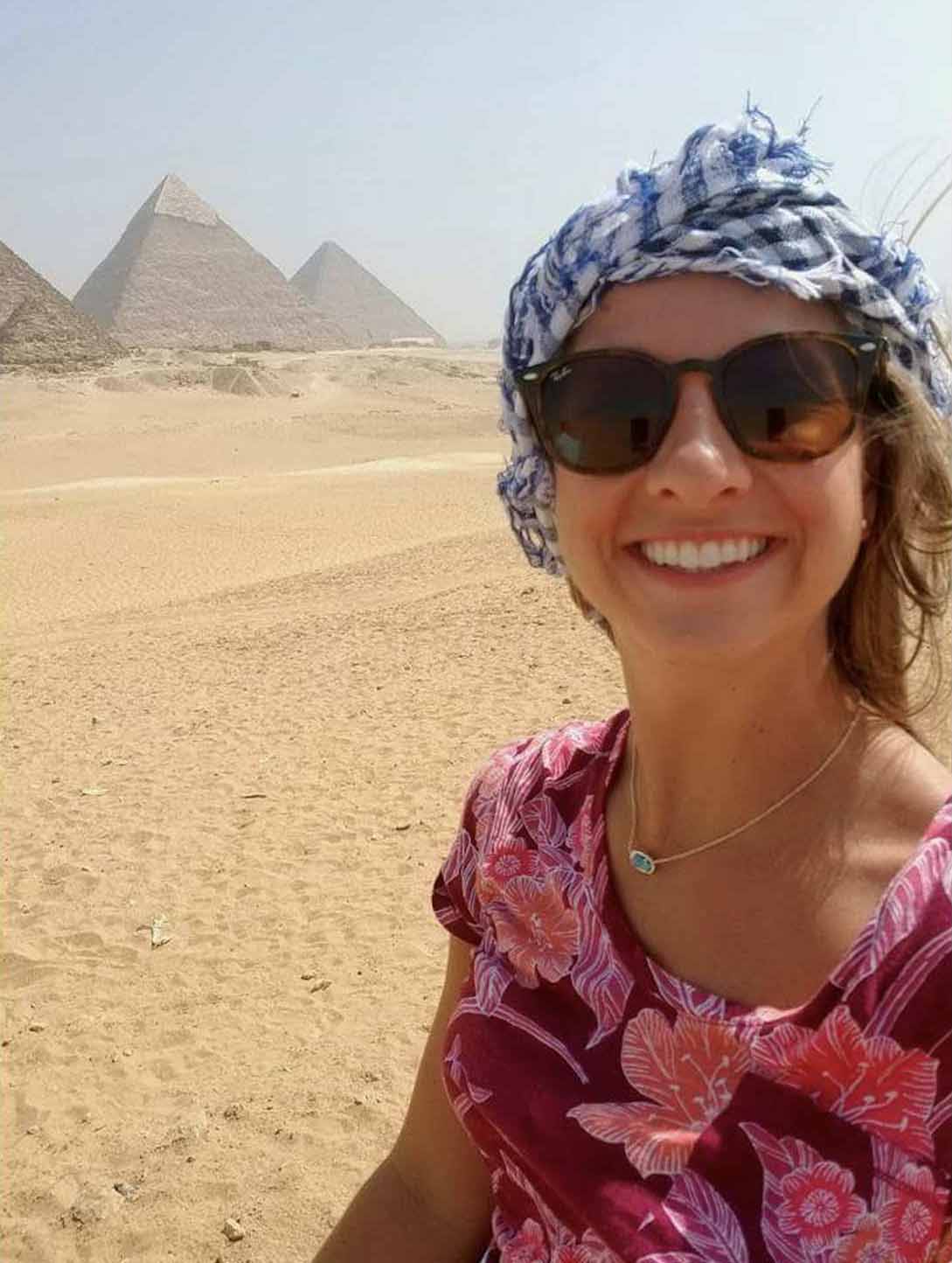
Name: Jill Auten
School Name: Deer Creek High School
City, State: Edmond, OK
Subjects Taught: Government and Personal Finance (presently); World History, Oklahoma History, U.S. History (previously)
Grades Taught: 12th grade (presently); 8th and 9th grades (previously)
No. of Years Teaching: 6.5
Honors: Governor’s Volunteer Award 2014; Teacher of the Month May 2017; Teacher of the Year Nominee 2015 and 2017
With a background in teaching history of all kinds – world history, U.S. history and Oklahoma state history – Jill Auten currently teaches Government and Personal Finance to 12th graders at a public high school in Edmond, Oklahoma.
She enjoys educating her students on the practical application of civics. “To encourage civic engagement, I created voter registration packets for my school’s seniors to receive on their 18th birthday,” Auten says.
Transformative Teaching
Having co-authored research papers on subjects such as the role of instructional design in transformative learning, Auten works to apply those theories in her approach to classroom management and teaching philosophy.
“My goal as an educator is to provide learning in such a manner that students are prepared for life after graduation,” Auten says. “I model behaviors I hope they will emulate and teach them skills – manners, respect for the environment, respect for others, civic duty, etc. – that are vital to their long-term success. I believe students will seek to reach the high bar I have set for them as I communicate my belief in their ability to succeed.”
Diversity Doctrine
In her Government class, Auten says she strives to teach diversity – meaning diversity of thought, experiences and expectations, she says. “I purposefully guide dynamic conversations in Government as students hear a variety of differing opinions,” Auten adds. “I feel this aids the students in developing critical-thinking skills while also learning to value the concerns of others with differing viewpoints, especially those with vastly different points of view.”
While her focus on diversity is apparent in her teaching philosophy, Auten says she is still challenged by fake news stories. “It may be a tired subject, but fake news and other non-empirical material is still prolific today,” she says. “I want students to decide for themselves their stance on issues from factual information rather than biased information.”
Auten hopes that her students look back on her class as a meaningful learning experience. “I hope my students will remember to be open-minded – withhold snap judgment – and that they will be lifelong learners. I hope that they will revere other cultures, practice civic participation, and be inquisitive about the world they encounter.”
SGAP Teacher Spotlight for April 2018 (Greg Baird, Murrieta, CA)
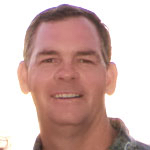
Vital Stats
Name: Greg Baird
School Name: Murrieta Valley High School
City, State: Murrieta, CA
Subjects Taught: Modern World History, U.S. Government
Grades Taught: 10, 12
No. of Years Teaching: 29
As a teacher with 29 years of teaching experience, Greg Baird has spent 28 of those years teaching students at Murrieta Valley High School (MVHS) in Murrieta, California. MVHS is a four-year comprehensive public school that has been named a California Distinguished School awardee and is fully accredited by the Western Association of Schools and Colleges. Baird began teaching at MVHS in 1990, the year the public school was founded – indeed, Baird says he was the first teacher hired there!
“I’m proud to be associated with the excellent teachers in my school, district, state and nation,” Baird says. “All teachers have a tremendous impact on their students for their entire lives.” Today, Baird teaches Modern World History and U.S. Government to sophomore and senior high school students in addition to serving as Chairman of the school’s History Social Science Department. “History and Social Science teachers deal with the essential issue of people forming communities,” Baird says. “This is why our classes are so important in understanding the past and helping to forge the future.”
Modern Problems
As a social studies educator at a public high school, Baird says Common Core standards are definitely changing the way History and Social Science classes are taught. “It’s not so much about the learning all the facts, but being able to analyze information and communicate clearly.”
Since his Modern World History class covers hundreds of years, Baird says he doesn’t expect students to remember all the facts. “However, I hope that students can relate to characters from the past and see them as human beings who had to make tough decisions just like us,” he adds.
Baird says his greatest challenge is battling bias, whether in the media or in the classroom. “Politics in our country is very polarized right now, and many students get caught up in the rhetoric,” Baird says. “They have a hard time seeing issues and individuals from another point of view.”
Positive, Not Punitive
Baird says his teaching philosophy is founded on a positive classroom management strategy, with the goal of responding to students in positive rather than punitive ways. “Students who are engaged in the lesson rarely cause behavior problems,” Baird says. “I strive to cultivate positive relationships with my students, and create interesting lesson plans that challenge students. This tends to keep the kids learning and out of trouble.
What does Baird hope students remember about him and his class? “Most students will not remember all of the checks and balances, but I hope to prepare all my students to be productive and informed citizens,” Baird says. “And I hope they remember me as a caring adult.”
SGAP Teacher Spotlight for March 2018 (David Weikel of Chattanooga, TN)
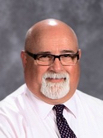
Vital Stats
Name: David Weikel
School Name: Notre Dame High School
City, State: Chattanooga, TN
Subject(s) Taught: Civics, AP Government and Politics, Public Speaking
Grade(s) Taught: 9, 11 and 12
No. of Years Teaching: 14
Honors: Board of Directors for Freedoms Foundation of Valley Forge, Chattanooga Chapter
As an educator for grades 9, 11 and 12 at Notre Dame High School – a Roman Catholic college preparatory school in Chattanooga, Tennessee – David Weikel says he devotes much of his time to teaching Civics and AP Government and Politics. Although he has 14 years of teaching experience, this is his first year teaching AP Government and Politics. “This is a particularly eventful time to be teaching government to students,” Weikel says. “And that will probably continue for some time. My teaching philosophy is to make learning fun while still getting the message across to my students.”
Encouraging Active Citizenry
Weikel’s approach to managing his classroom is seasoned and reflects his nearly 15 years’ experience in teaching. “My students do not have assigned seats, nor do they have to ask to go to the bathroom. These freedoms cause them to feel more like adults and they perform better than if they were treated like children.” Although flexible in his teaching style, Weikel’s firm commitment to educating students about the importance of active citizenry is evident. He says he uses the SGAP program in his AP classes to engage students in discussion about current events in government and politics. “In large part due to SGAP, I was able to get 42 new students to register as first-time voters in the fall,” Weikel says. “Many of my students will be eligible to vote for their first time and they want to be part of the solution.”
Teacher’s Takeaway
What’s the one thing Weikel hopes students will remember about his AP Government and Politics class? “The takeaway from my class that I want students to remember is to vote in all elections,” he says. “And that’s not just the national ones, but voting at every level and despite who’s running.” Looking ahead, what does Weikel think social studies teachers should focus on? “In the future, we social studies teachers need to continue to teach these issues to our students,” Weikel says. “We need to ingrain in them that they are the future leaders of our nation.”
SGAP Teacher Spotlight for February 2018 (Dan Cappleman of Albuquerque, NM)
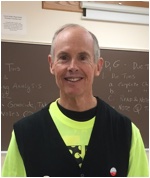
Vital Stats
Name: Dan Cappleman
School Name: St. Pius X High School
City, State: Albuquerque, NM
Subjects Taught: American Government and Economics; AP U.S. Government and Politics
Grade Taught: 12th Grade
No. of Years Teaching: 21 years
Honors: St. Pius X High School Teacher of the Year 2002; nominated for Golden Apple 2007
As a twelfth grade educator who works with college-bound seniors at a Catholic high school in Albuquerque, Dan Cappleman says he loves teaching. “It has been a privilege and a blessing to teach at a school where I can also practice and model my faith,” he says. “Teaching is actually my second career.”
A Proverbial Philosophy
Cappleman says his teaching philosophy could be summed up with one proverb: The teacher opens the door; we enter by ourselves. “I share this saying with my students on day one,” Cappleman says. “I tell them I pledge to always do my part – to provide the tools and leadership. But students know they must take responsibility to develop the self-discipline and self-direction that is vital to success in college and beyond.”
Cappleman says a typical day in his classroom asks students to take notes, read, quiz their knowledge through essays and tests – in addition to discussion of current events – plus hands-on and experiential learning through problem solving simulations, moot court, student congress and mock trials.
“Demonstrate to students that you love what you are doing, that your presence is no accident, that you care about them as people and want them to grow and succeed,” Cappleman adds.
Teachers and Technology
A teacher with 21 years of experience as an educator, Cappleman says his greatest challenges have to do with technology and its influence on today’s students. “Technology and social media are distracting students from the importance of the principles in the founding documents,” Cappleman says. “Too much misinformation is present on social media. Society as a whole – not just students – spends an ever-increasing amount of their day absorbed in the ‘social’ aspect of social media.
This distracts us from subjects of vital, lasting importance, including the constitutional principles of the founding documents.” “My favorite quote from Chief Justice John Marshall is, ‘The peculiar circumstances of the moment may render a measure more or less wise, but cannot render it more or less constitutional,’” he says. However, Cappleman believes there are benefits to technology as well as detriments.
“Technology enhances the teacher’s ability to expose students to resources such as primary source documents and activities,” he says. “These are positives to student learning and engagement.”
An Educator’s Best Advice
Cappleman believes technology will also influence future trends for teachers. “Technology will continue to accelerate and it will impact all teaching increasingly, for better or for worse,” he says. “But the challenge will remain the same.”
Now that Cappleman has spent more than two decades of his time teaching, what advice would he offer to a teacher about to embark on their own teaching career today? “Always be honest with students and walk the talk,” Cappleman says. “As I promote the need for good citizens to be informed and vote, I share my voting record so students know I really believe what I’m telling them.”
Be clear in your expectations, Cappleman advises. “Follow through, and students will respond positively,” he adds. “Show students you love the Republic. They will feel that and want to love it, too.”
SGAP Teacher Spotlight for October 2017: (Lori Dumerer of Carrollton, TX)
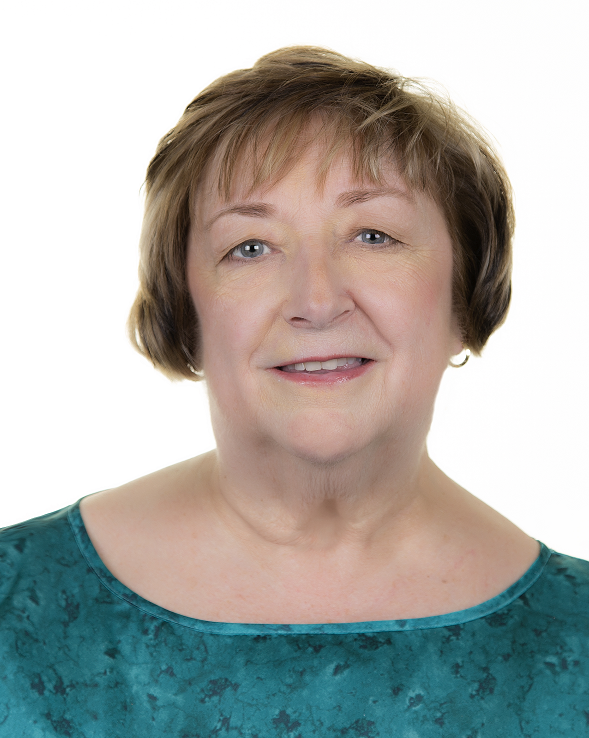
Vital Stats
Name: Lori Dumerer
School Name: RL Turner High School
City, State: Carrollton, TX
Subjects Taught: AP US Government; AP Macroeconomics; AP US History; Pre-AP USH
Grades Taught: 12, 11
Years Teaching: 19+ Honors: Texas Council of Social Studies Secondary Teacher of the Year Award for 2002; a Humanities Teacher of the Year award in 2014 from Humanities Texas, an affiliate of National Endowment for the Humanities; Who’s Who in American Education and in the World
As a social studies educator with nearly 20 years of teaching experience, Lori Dumerer believes today’s political environment presents unique challenges to those who teach American History and U.S. Government.
“I have never before felt like I had to be so careful in explaining what is occurring in government,” says Dumerer, who teaches at a public high school in Carrollton, Texas. “I try to make public policy a focus of the course but I am discovering that articulation of a defined policy is not always clear.”
Fake News and the Federalist
Dumerer says one of her challenges is knowing how to answer students’ questions about fake news. “Students are asking why some politicians claim that news outlets are reporting ‘fake news’ when they can see the information is presented with evidence that can be verified,” she says. In response to students’ confusion about “inaccurate political messaging,” as Dumerer puts it, she has been lecturing and leading classroom discussion on the Federalist papers, particularly Nos. 47, 49 and 51.
“We have been examining how the system can keep extreme ideas in check,” she says. “To preserve democratic government, I have to subscribe to Madison’s ideas about factionalism laid out in Federalist No. 51.”
Dumerer believes it is critical to help students engage in civil discourse with one another. “My students must be able to respectfully disagree with another person who may hold opposing viewpoints,” she explains. “In my classes, students come to understand that they are free to express controversial views.”
Agreeing to Disagree
Before students’ first Socratic seminar, they practice using each other’s surname and acknowledging one another’s views, Dumerer say. “We practice respectfully disagreeing with one another and talk through how to diffuse confrontations in class,” she adds. “They must use evidence from documents to support their claims in speaking as well as in writing.”
To stir interest in U.S. government and civics, Dumerer looks for ‘trigger’ issues that she knows will spark student engagement. “I try very carefully to listen to what students’ concerns are and to incorporate some aspect of that issue into the class,” she says. “I do intentionally integrate humor where possible and find students pay more attention when they have been able to laugh at some aspect of the content.”
At the heart of Dumerer’s teaching philosophy is a desire to help students learn how to become active participants in society. “Our society gains immensely since knowledgeable students will help shape the direction government leans,” she says.
Trends of Tomorrow
Looking ahead, Dumerer says the trends that will most influence social studies teachers in the future are technology-related. “In schools across the country, teachers are asked to integrate technology in new ways so that students learn how to garner raw data and factual information to be used in real-time applications,” she says. “This necessitates teachers embracing a variety of applications and discovering meaningful uses.”
Dumerer also believes that social media will play a crucial role in education for both teachers and students. “Additionally, social studies education is likely to become more experiential, with opportunities such as internships or shadowing professionals the norm rather than the exception.”
After dedicating so many years of her life to teaching, what does Dumerer hope to leave as her legacy to her students? “I hope that years after leaving my class, my students will remember three points,” she says. “First, our government works because we participate; second, success is earned through failure; and third, we should practice tolerance.”
SGAP Teacher Spotlight for November 2017 (Eric Lind of Ault, CO)
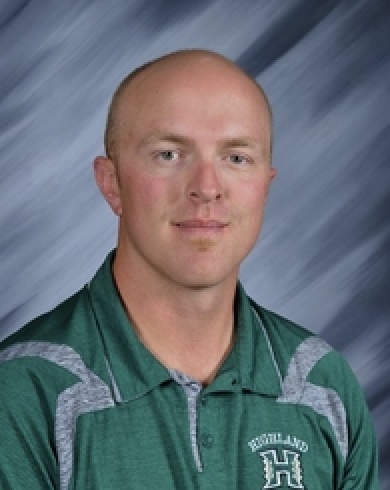
Vital Stats
Name: Eric Lind
School Name: Highland High School
City, State: Ault, Colorado
Subjects Taught: Civil Government and U.S. History
Grades Taught: 11 and 12
Years Teaching: 7
Honors: 2016 and 2017 Girls Track and Field Mile High League Coach of the Year
Q&A:
What is your philosophy about teaching American History and Government?
“My philosophy in teaching American History and Government is to make as many real world connections to the past as possible. If you can help students understand that history is not just memorizing people and dates but understanding cause and effect relationships, you can teach skills that students take with them for the rest of their lives.”
How do you stir interest in the subject of American History and U.S. Government among students?
“Not every student loves history. In fact, many dread the topic. As a teacher, I try to make each day different from the previous day so that students stay engaged. While we do repeat skills and activities, I believe adjusting the setting in which the task is completed helps with engagement among students.”
Why it is so important for your students to understand the critical role they can play in our country’s political system?
“Many times students enter a history or civics class anticipating that they will just learn about things that have happened in the past or people who have died long ago. It is my goal to make them realize that learning about the past can help them understand the current conditions that they live in today, as well as make predictions for what the future holds.”
What trends/issues do you think may influence social studies teachers in the future?
“Understanding the concepts of federalism and the impact of globalization will be key topics for teachers to tackle in the ever-changing world we live in today and going forward.”
What would your students say they had learned after spending a year in your class?
“I hope that students leave my class at the end of each year with a better understanding of how we have become the country that we live in today through a cause and effect understanding of history. Also, I hope they better understand the tools they possess as citizens in our government structure and aspire to be a more active participant as they grow older.”
SGAP Teacher Spotlight for Dec. 2017 (Kevin Cline of Frankton, IN)

Name: Kevin M. Cline
School Name: Frankton High School
City, State: Frankton, IN
Subjects Taught: U.S. History, U.S. Government, Dual Credit Government
Grades Taught: 11-12
Years Teaching: 13
Honors: Gilder Lehrman Institute of American History’s 2016 National History Teacher of the Year; 2012 American Civic Education Teaching Award (ACETA) Recipient
What is your philosophy about teaching your subject?
“I love teaching both U.S. History and Government because these classes afford us the chance to encourage the kind of critical thinking that is so necessary now. I am a firm believer in active citizenship. Young people must leave their secondary educational experience with a strong understanding of their responsibilities as citizens, and the ways in which individual action or inaction can impact their community and country.”
How do you stir interest in the subject among students?
“Interest comes through interaction. History and government are far from static subjects, designed to be studied through a textbook. Students interact with the voices of the past through primary sources, work through simulations designed to put them into the events and situations we study, and meet their elected officials and experts in the field. These experiences always foster the best thinking, the best discussion, and the best questions.”
Why it is so important for today’s students to understand they have a voice in the political system?
“This is true not just for students, but for all Americans. After decades of extraordinarily low voter turnout, it seems clear that our country is facing an epidemic of apathy. Few of our Founders agreed on everything, but they were able to achieve compromise on most issues after engaging in significant dialogue. These kinds of conversations aren’t happening enough. Thus the challenge before history and government teachers is to offer students a chance to engage in thoughtful and informed deliberation.”
What trends/issues do you think may influence social studies teachers in the future?
“Social studies education continues to be negated to the back burner. Yet our classrooms are the ideal place for the kind of growth we need as a citizenry. Not in forcing students to believe one way or the other, but in facilitating their growth as active, free-thinking, informed citizens who can engage in critical thinking and dialogue.”
What would your students say they had learned after spending a year in your class?
“If a student can leave my class with a stronger ability to deliberate, an appreciation for multiple perspectives, and a willingness to engage in productive and respectful dialogue, then I am happy. That is the end goal – to help students grow into people who can do their part in doing some good.”

